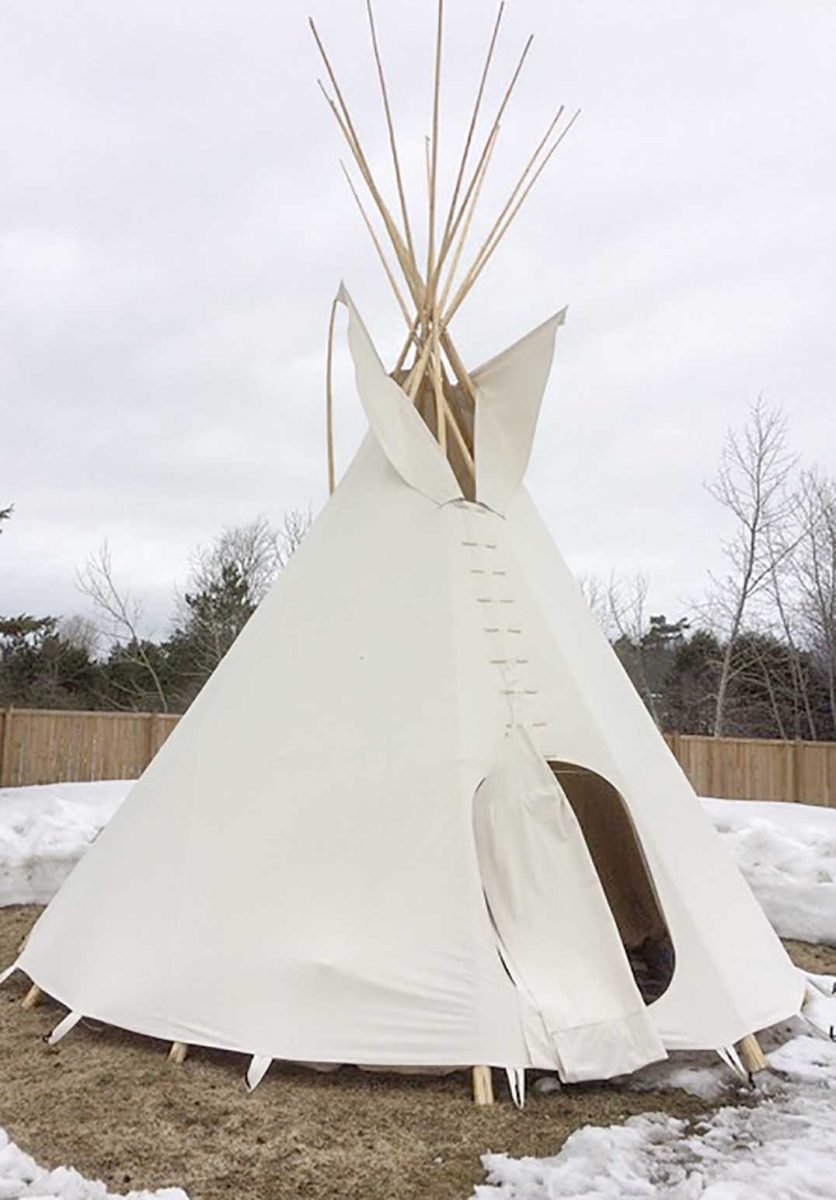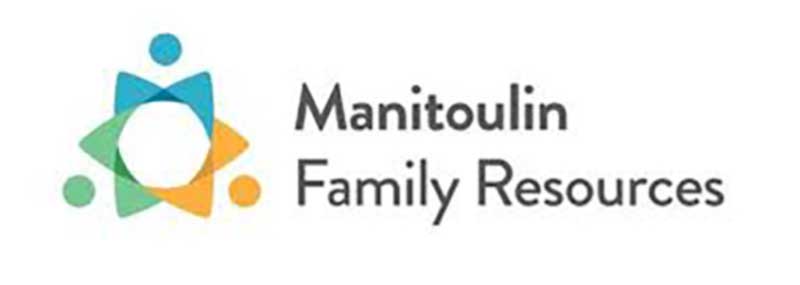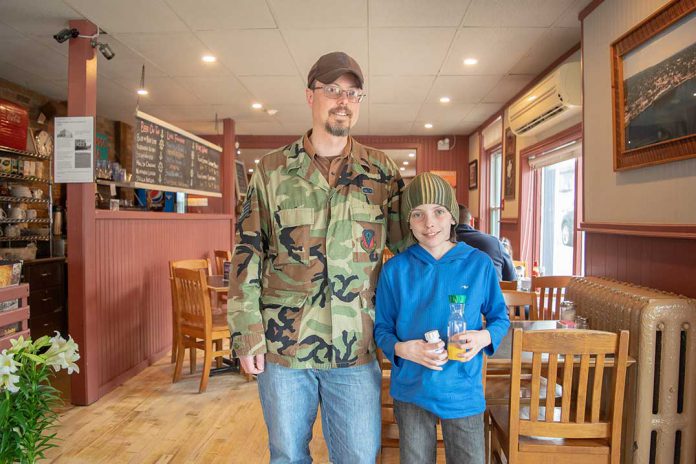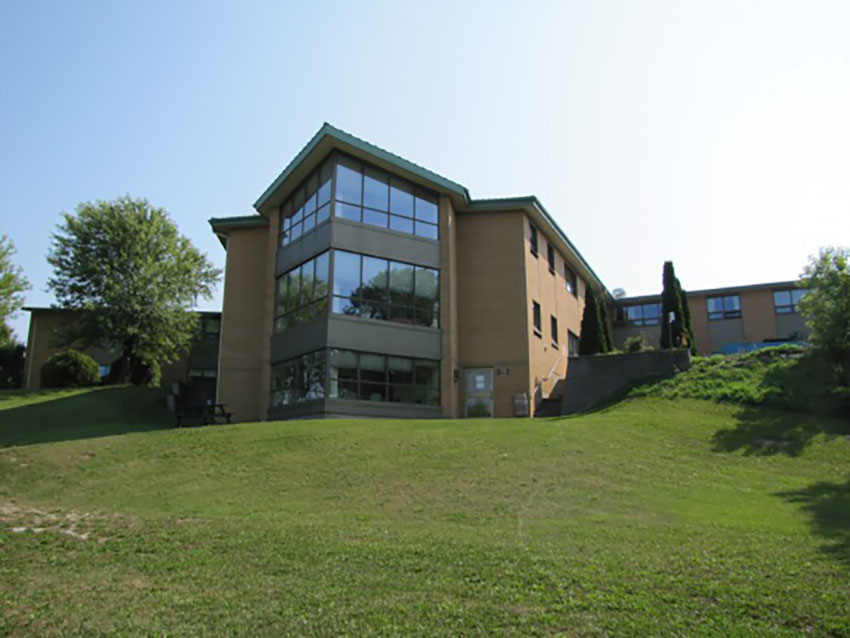MINDEMOYA—Manitoulin Family Resources (MFR) has added a tipi to its grounds as part of its violence against women prevention program; a resource for women, children and youth to access as part of their healing journeys.
“I’ve had clients in the shelter be enthusiastic and really feel a sense of home, of well-being,” said Carrianne Agawa, program director of the violence against women prevention program at MFR.
“A past client was chatting with me this afternoon as she was heading to the bank. She remarked that when she first saw it, she wanted to cry because it felt like home to her. And she’s not Indigenous,” said Ms. Agawa.
The new structure took several hours to erect and was installed by Sumac Tipi Company of Serpent River First Nation in Cutler. Ms. Agawa said the owner of the business, who was on-site to help build the tipi, knew her father and shared stories during the process.
“They were very knowledgeable on the tipi and were able to help young adults who are currently learning the craft of tipi-making,” said Ms. Agawa. “They were a good company to work with.”
She said the structure will serve as a place where people of all backgrounds can gather, host staff meetings and workshops with clients.
“Of those who do access our services, 80 percent are Indigenous. And if 80 percent of our clients are Indigenous, we need to move in a way that’s healing for them as well,” said Ms. Agawa. “It’s a way of acknowledging that our people and their ways of being and knowing are important, no matter who we are.”
Ms. Agawa acknowledged that tipis are traditional to Plains Indian peoples, not Anishinabek, but said that the structure still enables employees to get outside, be on the land and access traditional teachings.

The day after the tipi was built, MFR staff and elders lit a fire in the structure and elder Josh Eshkawkogan led tipi and inner fire teachings. There was a drum-making workshop the previous weekend and once the tipi was built, they birthed the drums.
“It was cold out and snowing but we were warm—as we had a fire going—and excited about the possibilities before us. The tipi is a great tool to increase the mental wellness of all our clients, young and old,” said Ms. Agawa.
She expects that this new addition will cause a shift in how care is offered at MFR.
“It changes the dynamics of the work that people do. We’re confined in an office, at a chair behind a desk at a computer. Often, we lose that connection we need (to important elements) just outside the door. I find that in a tipi or in a lodge, that brings us back to who we are and allows for us to heal the way we’re meant to heal,” said Ms. Agawa.
She added that funding for the tipi came from the Children and Youth in Violence Against Women Shelters Support and Services Funding Plan.





